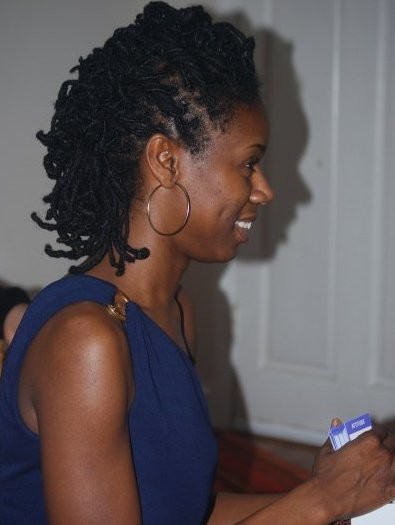
“do we really want justice scalia weighing in on black hair?”
my white law school classmate thought his statement was funny, but it made me feel invisible. i was sitting in my american racism and the law class discussing rodgers v. american airlines. in the case, the court of appeals ruled that american airlines had the legal authority to forbid the plaintiff, a black woman, from wearing cornrows to work.
the reasoning: braids weren’t synonymous with blackness — just look at white actress bo derek who had made the style “popular” in her movie 10.
the court’s ruling and ignorance that what bo derek had actually done was appropriate black culture was shocking. but not surprising. laws aren’t objective and often entrench racism. look to the legalization of slavery, the black codes, voting literacy tests, restrictive covenants in housing and stop and frisk policies for centuries of proof.
READ: For Black Women Hair is Political
i sat in my law school class wearing my hair in dreadlocks and as one of only a handful of black students. i thought about how a court would perceive my right to wear my hair in a style that’s symbolic of my culture and heritage. if braids weren’t protected, surely an employer could condemn my locs without repercussion.
recently, the 11th circuit court of appeals answered my question. a black plaintiff had filed suit claiming her job offer was rescinded after she refused to cut her dreads. the company’s hr manager told her locs can “get messy,” and they didn’t fit within company guidelines. after filing a complaint with the equal employment opportunity council, the matter was taken to court where the court of appeals eventually ruled against her. the reason? hair is not an “immutable characteristic” of race because it can be changed.
i disagree.
the relationship a black woman has with her hair can be sacred. pain, joy, frustration and pride are all conveyed through a single hairstyle. as a people disconnected from our roots through the trans atlantic slave trade, natural styles like afros, locs and braids are embraced by some as acts of rebellion. at the very least, our hair connects us to the universal fabric of blackness.
yes, my hairstyle can change, but like black women around the world, i inherited my relationship with it. our culture is made invisible when a court of law fails to recognize our long, and sometime tortured, relationship with our hair.
READ: Workplace Adornment: A Rebellious Black Woman Speaks
policing black women’s hairstyles is just another example of how our bodies are not our own. from birthing babies who would be enslaved to enduring sexual violence and trauma to forced sterilizations, we’ve historically had little bodily autonomy. the 11th circuit’s decision must be viewed in this cultural and historical context because it decided something much bigger than a simple hairstyle. it decided to rip at the shreds of agency and cultural connectedness that black women have left.
